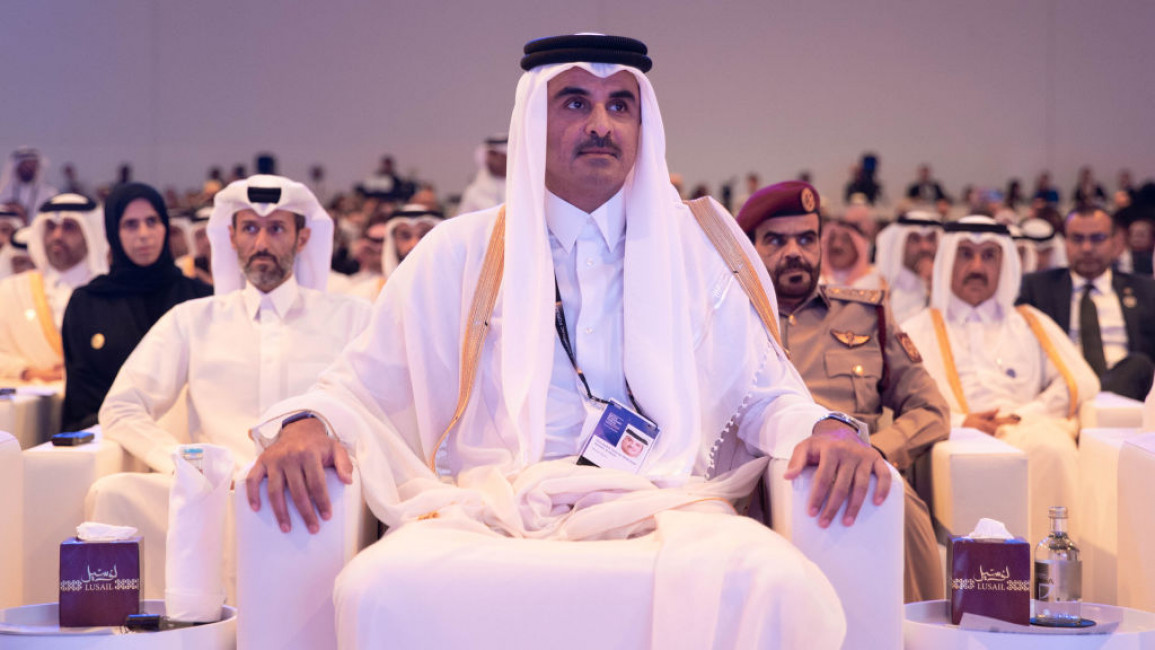Qatar emir holds Baghdad talks with Iraq PM
Iraq signed several gas and infrastructure deals with Qatar on Thursday as it welcomed the Gulf state's emir to Baghdad as part of its push to secure foreign investment in reconstruction.
Sheikh Tamim bin Hamad Al-Thani was welcomed by Prime Minister Mohamed Shia al-Sudani at the airport, images broadcast on Iraqi media showed.
Relations between the two countries saw a long period of tension under ousted dictator Saddam Hussein, before easing up over the past decade.
Despite Iraq's immense oil and gas reserves, about one third of the population lives in poverty, and the government is seeking out regional partners to rebuild its war-battered roads, schools and hospitals.
Sudani's office said the two sides had signed agreements on oil and gas supply to Iraq, the establishment of a joint oil company and the construction of a refinery.
Iraq's National Investment Authority also signed agreements with Qatari firms working in the property and construction sectors.
QatarEnergy has already agreed to take a 25 per cent stake in the Gas Growth Integrated Project, a $10 billion plan aimed at more efficiently using Iraq's gas resources and improving the country's rundown electricity grid.
The state-owned Qatari company joined the consortium at the invitation of French energy firm TotalEnergies, which oversees a 45-per cent stake in the project. Iraq's Basra Oil Company holds 30 percent.
Qatari officials joined a conference in Baghdad in late May alongside regional counterparts, where Iraq announced an ambitious project to turn itself into a transport hub by developing its road and rail infrastructure, linking Europe with the Middle East.
If completed, the $17 billion project known as the "Route of Development" would span the length of the country, stretching 1,200 kilometres (745 miles) from the northern border with Turkey to the Gulf in the south.

![Bahrain [getty] Bahrain [getty]](/sites/default/files/styles/image_212x120/public/media/images/5F28B59A-942B-4B6A-A5A8-09D476D1E68D.jpg?h=d1cb525d&itok=oiOvW1NO)

